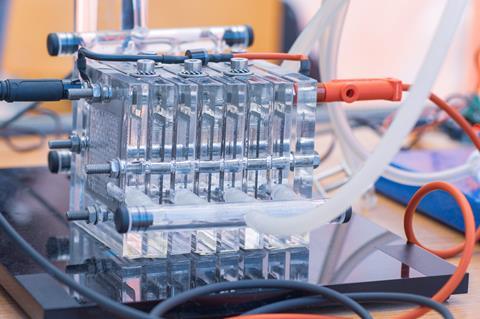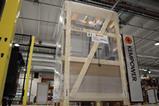Researchers at the Korea Advanced Institute of Science and Technology (KAIST) have unveiled a cost-effective alternative to platinum catalysts in hydrogen fuel cells. Their breakthrough, reported to be 1,000 times cheaper, involves enhancing the performance of iron- and nitrogen-doped carbon electrodes with phosphine gas treatment.

A research team at the Korea Advanced Institute of Science and Technology (KAIST) has made significant strides in enhancing the performance of iron- and nitrogen-doped carbon electrodes for hydrogen fuel cells. This alternative reportedly costs 1,000 times less than platinum catalysts traditionally used in such fuel cells.
Platinum plays a crucial role in accelerating the oxygen reduction reaction at the cathode in hydrogen fuel cells, thereby increasing overall performance. However, the KAIST research team, in a paper published in the peer-reviewed journal ACS Catalysis, details the successful use of iron- and nitrogen-doped carbon (Fe-N-C) electrodes treated with phosphine gas to improve performance without generating harmful intermediaries.
The treated electrodes exhibited one of the best performances among reported Fe−N−C catalysts. While platinum electrodes generally outperformed phosphine-treated Fe-N-C in terms of actual cell voltage and power density, the research highlights a potential cost-performance trade-off for the technology.
While rising platinum prices may not pose an immediate challenge to the electrolyser sector, the demand for both platinum and iridium is expected to increase in the long term, driven by the growth of hydrogen technologies. FCEVs (Fuel Cell electric vehicles) are anticipated to be a major driver for platinum use in automobiles, potentially requiring six million ounces annually by 2040.
Overall, the research from KAIST opens up possibilities for cost-effective alternatives in hydrogen fuel cells, but the industry must carefully navigate the trade-offs between cost and performance, especially concerning the scarcity and rising prices of critical metals like platinum and iridium.


















